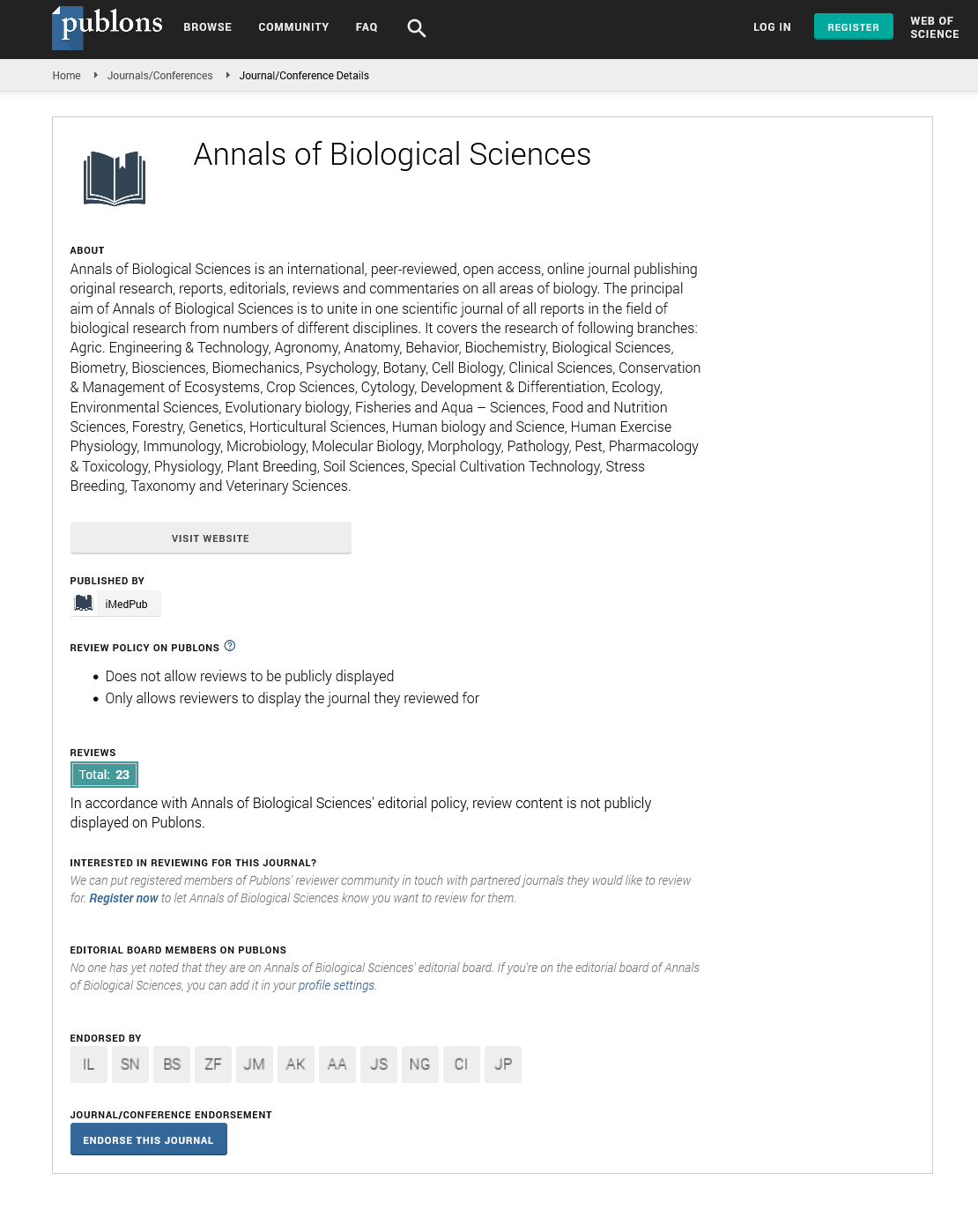ISSN : 2348-1927
Annals of Biological Sciences
The impact of epidermal growth factor (EGF) supernatant on pig performance and ileal microbiota
ANNUAL BIOTECHNOLOGY CONGRESS
August 17-18, 2017 | Toronto, Canada
Nadeem Akhtar, Crystal Levesque, Evanna Huynh, Carrie Walk3, Pete Wilcock, Zhengxiao Zhang, Paul Dyce, Cornelis F M De Lange, Ehsan Khafipour, and Julang Li
University of Guelph, Canada
South Dakota State University, USA
AB Vista, United Kingdom
University of Manitoba, Canada
ScientificTracks Abstracts: Ann Biol Sci
DOI: 10.21767/2348-1927-C1-002
Abstract
Early weaning of pigs can lead to low feed intake resulting in a lag in growth, performance and intestine infection. Epidermal growth factor (EGF), the most abundant growth factor in milk, increased weaned pig body weight gain and feed efficiency in our previous work. It is believed that intestinal microbiota plays an important role in pig growth but data is limited on the impact of feed additives on intestinal microbiota. The objective of the study is to investigate, if the positive influence on weight gain, and intestinal health with dietary EGF supplementation is related to differences in intestinal microbiota. Pichia pastoris were engineered to secrete porcine EGF using codon-optimized sequence. To examine the efficacy of EGF, an animal trial was performed using 72 pigs (2 equal blocks of 36 pigs with 3 barrows and 3 gilts/pen). The animals were assigned to one of two dietary treatments at weaning (20�±2 d of age; n=6 pens/treatment) balancing across treatment for litter, gender and initial BW. Supernatant with EGF at 120 �¼g/kg BW/d and without EGF (control) was added to the feed for 21 d, followed by a common diet for 7 d. Animal performance was monitored on a weekly basis and ileal digesta samples were collected for microbiome analysis after 21 d of treatment. Pigs fed diets containing EGF fermentation supernatant had a greater (P=0.01) overall daily gain which is consistent to our previous finding. No difference in alpha-diversity (Chao1, Shanon, and Simpson indices) and beta-diversity (weighted and unweighted UniFrac distances) of ileal digesta microbiota between EGF supplemented and control pigs were observed. The relative abundances of bacterial taxa did not differ among treatment groups at the phylum level; however, the abundances of Corynebacterium (0.0 vs 0.9%), Blautia (0.003 vs 0.26%), and Coprococcus (0.0 vs 0.05%) genera and Rumminococcaceae family (0.001 vs 0.08%) were decreased (P<0.05) in EGF group compared to control, which might positively influence intestinal health.
Biography
Nadeem Akhtar has completed his PhD in Biotechnology from Thapar University, India and is currently is a Post-doctoral fellow in the Department of Animal Biosciences, University of Guelph, Canada. He has published more than 15 papers in reputed journals and filed a patent in India. He has also been serving as a Reviewer for few reputed journals such as Environmental Progress & Sustainable Energy, Journal of Taiwan Institute of Chemical Engineers, Bioinfo Publications etc.
Google Scholar citation report
Citations : 406
Annals of Biological Sciences received 406 citations as per Google Scholar report
Annals of Biological Sciences peer review process verified at publons
Abstracted/Indexed in
- Google Scholar
- China National Knowledge Infrastructure (CNKI)
- WorldCat
- Publons
- ROAD
- Secret Search Engine Labs
Open Access Journals
- Aquaculture & Veterinary Science
- Chemistry & Chemical Sciences
- Clinical Sciences
- Engineering
- General Science
- Genetics & Molecular Biology
- Health Care & Nursing
- Immunology & Microbiology
- Materials Science
- Mathematics & Physics
- Medical Sciences
- Neurology & Psychiatry
- Oncology & Cancer Science
- Pharmaceutical Sciences
